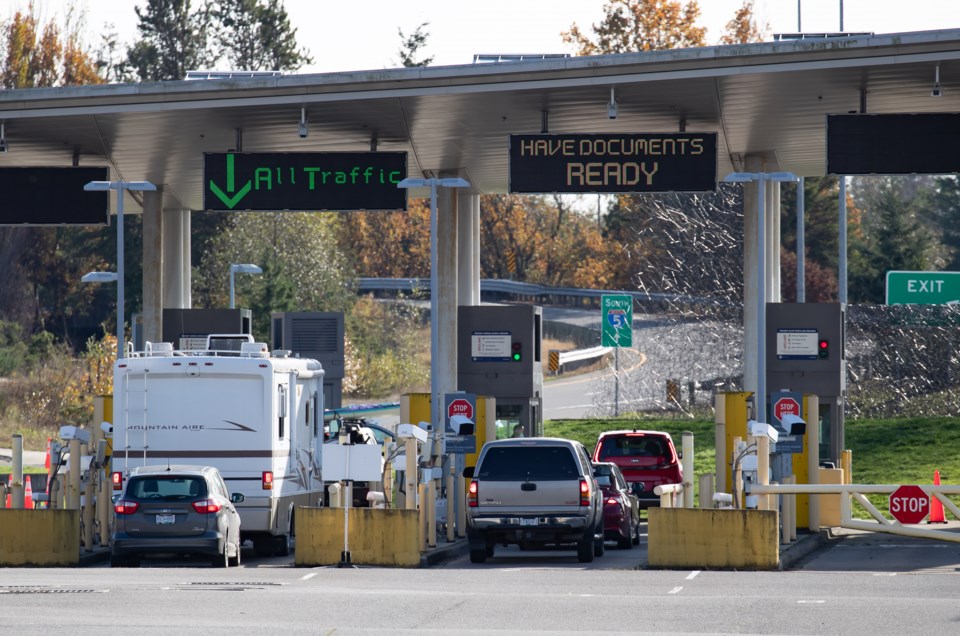加拿大公民研究所
加拿大公民研究所 (ICC) 由 Rt. Hon. Adrienne Clarkson 和 John Ralston Saul 创立并担任联合主席,是一家全国性非营利组织,通过创新计划、活动和合作伙伴关系让加拿大人参与公民身份建设,旨在确保新公民受到欢迎和平等对待,在所有加拿大公民之间建立有意义的联系,培养积极参与的公民文化,并庆祝成为加拿大人的意义。
ICC 的“建设公民”计划拥有一个由 550 多名志愿者组成的全国网络,组织特殊的公民仪式和独特的圆桌讨论,鼓励新老加拿大人相互联系并分享故事。
CANOO 应用程序(以前称为文化通行证)为新公民(及其子女)提供了在宣誓就职后的一年内免费参观加拿大 1,000 多个景点的机会。该计划通过公民入籍仪式覆盖了 100% 的新加拿大人,成千上万的新公民已经注册并使用了他们的文化通行证。
6 Degrees Citizen Space 于 2016 年启动,是一个关于 21 世纪公民身份、移民、包容性和多样性的全球论坛和对话。在此处了解有关 6 Degrees 的更多信息。
Institute For Canadian Citizenship
Founded and co-chaired by The Rt. Hon. Adrienne Clarkson and John Ralston Saul, the Institute for Canadian Citizenship (ICC) is a national, non-profit organization that engages Canadians in citizenship through innovative programs, campaigns and partnerships designed to ensure new citizens are welcomed and included as equals, to create meaningful connections among all Canadian citizens, to foster a culture of active, engaged citizens and to celebrate what it means to be Canadian.
With a national network of over 550 volunteers, the ICC's Building Citizenship program organizes special citizenship ceremonies with unique roundtable discussions that encourage new and established Canadians to connect and share stories.
The CANOO app (formerly the Cultural Access Pass) offers new citizens (and their children) the chance to visit over 1,000 attractions across Canada for free for a full year from the time they're sworn in. The program reaches 100% of new Canadians through citizenship ceremonies and tens of thousands of new citizens have registered and used their Cultural Access Pass.
Launched in 2016, 6 Degrees Citizen Space is a global forum and conversation on citizenship, immigration, inclusion, and diversity in the 21st century. Learn more about 6 Degrees here.
To learn more about the ICC, please visit their website.
Skilled newcomers are leaving Canada in record numbers: report | Canada Tonight
https://www.youtube.com/watch?v=lapAm6v5Dgo
CBC News 2024年11月19日
Daniel Bernhard, CEO of the Institute for Canadian Citizenship, discusses a new report authored by his organization that says economic migrants, or those selected by Ottawa to fill a need in Canada, are leaving the country in record numbers. 'When they leave, we lose,' Bernhard said.
Economic immigrants hand-picked by the federal government are leading a growing exodus of newcomers from Canada
Nov 19, 2024
New ICC/Conference Board Report Calls for Broad, Concerted Efforts to Retain Immigrants
November 19, 2024 – A new report from the Institute for Canadian Citizenship (ICC), conducted by the Conference Board of Canada shows that immigrants are leaving Canada in record numbers, particularly the high-skilled immigrants Canada urgently needs.
“These are tradespeople who build our homes, nurses who care for our loved ones, truckers who facilitate commerce, and entrepreneurs who spur innovation,” said ICC CEO Daniel Bernhard. “And they are increasingly headed out the door.”
Bernhard notes that the concerning findings of the report, entitled, “The Leaky Bucket 2024: A closer look at immigrant onward migration in Canada,” coincide with 30-year lows in public support for immigration.
“Canadians are bombarded with commentary telling them that high immigration levels are to blame for homegrown challenges including housing supply, inaccessible healthcare, crime, and even traffic,” said Bernhard. “Be careful what you wish for. This is globally coveted talent with global options. We need programs that entice them to stay, become active citizens and help fuel our economy.”
The report follows ICC’s first “Leaky Bucket” report released in 2023, also produced by the Conference Board of Canada. That original study revealed the alarming trend of immigrants leaving Canada in growing numbers to seek opportunity elsewhere. This year’s report provides updated figures and digs deeper into the characteristics of those immigrants who are leaving in greater and greater numbers. Highlights of the findings include:
- Francophone immigrants to Quebec and Ontario are much more likely than Anglophone immigrants to leave Canada to seek opportunity elsewhere
- The most populous cities in Canada—Montreal, Toronto and Vancouver— see high turnover rates of immigrants. They function as hubs for immigrant communities to access resources and support for their settlement journey
- In contrast, fast-growing, mid-sized cities in other provinces (Calgary, Alberta, Halifax, Nova Scotia and Moncton, New Brunswick) see the opposite trend, but have potentially greater challenges retaining immigrants in communities outside of their larger cities
- The Atlantic provinces see the highest rates of onward migration in Canada in the shorter term (three to seven years after arrival), but the lowest rates longer term (25 years and more after arrival)
- The highest two origin nations of immigrants leaving Canada are a combination of countries allowing dual citizenship (Lebanon) and those restricting citizenship only to that country (South Korea).
The Report includes recommendations to help stem the outward flow of newcomers, such as:
- Support provinces and municipalities to understand onward migration trends and address unique challenges in their cities and regions.
- Develop short-term and long-term strategies to address retention challenges at different points in immigrants’ settlement journeys.
- Engage educational institutions and settlement service organisations in the retention conversation.
- Consider the impact of language integration on retention and build out Francophone programs.
Read the full report here: “The Leaky Bucket 2024: A Closer Look at Immigrant onward migration in Canada.”
About ICC
The Institute for Canadian Citizenship (ICC) aspires to a Canada where newcomers don’t just come but stay, naturalize, succeed, and contribute maximally to our shared success. The ICC is best known for its Canoo Access Pass, a mobile app that currently provides over 750,000 newcomers with free and discounted access to more than 2,000 of Canada’s best culture, nature and sport experiences, plus exclusive deals with leading brands, so that they fall in love with Canada, stay, and become enthusiastic citizens
Media Contact
Alex Nanoff
613.709.6318
media@inclusion.ca
'Be careful what you wish for': New report warns that skilled immigrants are leaving Canada
The Institute for Canadian Citizenship says that one in five immigrants will leave Canada within 25 years
 Katherine DeClerq Nov 21 2024
Katherine DeClerq Nov 21 2024 Motorists wait at U.S. Customs and Border Protection inspection booths at the Peace Arch border crossing in Blaine, Wash., across the Canada-U.S. border from Surrey, B.C., on Monday, Nov. 8, 2021.
Motorists wait at U.S. Customs and Border Protection inspection booths at the Peace Arch border crossing in Blaine, Wash., across the Canada-U.S. border from Surrey, B.C., on Monday, Nov. 8, 2021. DITOR’S NOTE: This article originally appeared in Parliament Today, a Village Media newsletter devoted to covering federal politics on Parliament Hill.
One in five immigrants who land in Canada will leave within the next 25 years, particularly economic immigrants who play a large part in the country’s labour market, a newly released report suggests.
About a third of those who leave will do so within the first five years.
“These are not desperate people fleeing destitution for the comfort of Canada’s generosity. Rather, they are a globally coveted talent pool with global options,” the report says. “When we fail to retain newcomers, we are essentially helping them to contribute to another country’s success.”
This is the second instalment of a report on “onward migration” released by the Institute for Canadian Citizenship (ICC). Released on Tuesday, the document uses data from 2020, which it describes as being the “most recent” information while acknowledging the pandemic may have an impact on the data.
Of the 395,000 permanent residents Canada expects to have in 2025, the report projects a little over 3,200 will leave after one year, with about 25,500 leaving by 2030. About 18 per cent would leave within 25 years.
“Most of the immigrants leaving BC, Ontario and Quebec were living in the big cities at the time of departure, but in the Atlantic provinces, for example, most of the people who are leaving lived outside of the big cities,” ICC CEO Daniel Bernhard said.
The report notes that more than half of all immigrants who come to Canada are considered “economic immigrants" and are hand-selected to fill labour shortages. International students are also more likely to leave, particularly those who don’t hold a secondary work permit, even if they are able to gain permanent residency.
“Canadians are bombarded with commentary telling them that high immigration levels are to blame for homegrown challenges including housing supply, inaccessible health care, crime, and even traffic,” Bernhard noted.
“Be careful what you wish for. This is globally coveted talent with global options. We need programs that entice them to stay, become active citizens and help fuel our economy.”
The ICC is recommending that provincial and federal governments develop strategies to address onward migration and integrate retention targets into policy.
50% francophone immigrants leaving Ontario
The ICC is also calling on governments, particularly in Quebec and Ontario, to expand integration services for francophone immigrants.
“Cumulative onward migration rates show that Canada is losing one-third of its francophone immigrant population over the long term,” the report says. “This issue is particularly pronounced in Ontario, where francophone onward migration rates are high compared to its intake of francophone immigrants.”
The ICC suggests the data shows Ontario is struggling to retain francophone immigrants, despite it being a priority for Immigration, Refugees and Citizenship Canada (IRCC). Policymakers, the report says, should apply a “targeted approach to retaining immigrants in the first two years.”
“The most sobering implication is that the two categories of immigrants Canada prioritizes most, those are economic immigrants and francophones, are actually the least likely to make Canada their forever home,” Bernhard said.